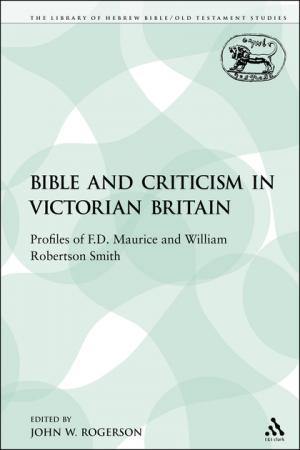John Rogerson’s The Bible and Criticism in Victorian Britain has a curious focus: ‘scholars who were dismissed from their posts’. The author chooses two, F. D. Maurice, obliged to resign from his post at King’s College in 1853; and, drawn from a series of Gifford lectures Rogerson gave in 1994, William Smith, expulsed from the Free Church College in 1881. Smith wrote that some work of Moses was actually post-exilic and, in his Theological Essays, Maurice felt punishment in hell was not everlasting.
Along with biographies, Rogerson concentrates on the two men’s ideas. For Maurice, the Bible is the record of God’s dealing with the human race and God’s purpose is to bless and to accept the whole human race. Rogerson believes Maurice was essentially conservative and in the end a precritical scholar.
Rogerson is more taken with William Smith, ‘because he was larger than life’. Fluent in German, Smith studied under influential thinkers such as Ritschl and Wellhausen. Already in 1852, Maurice was pressing for a historical rather than an christological interpretation of Isaiah 7:14, something that Rogerson observes ‘was a brave thing to do’. Of the two men, Smith was essential a modern scholar.



